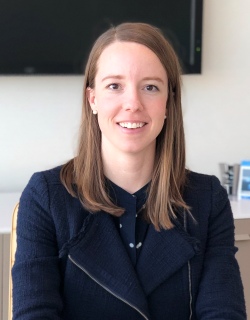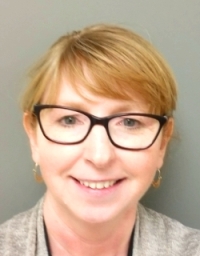

Mandy Lise McKenna, MBA, P.Eng.
Manager of Capital Projects and Planning, University of Prince Edward Island
Wendy Weeks, P.Eng.
Business Process and Technology Change Manager, ITSS, University of Prince Edward Island
Joining institutions across the country, the University of Prince Edward Island (UPEI) is planning a blended model of online and in-person classes for the Fall 2020 semester, and two of their engineers are helping the university prepare for this new reality.
Enabling online instruction
Wendy Weeks’ job is to enable technology. She’s Business Process and Technology Change Manager with UPEI’s IT Systems and Services (ITSS), and works for both ITSS and the Atlantic Veterinary College. With a planned increase in the amount of online instruction, she’s considering how to use technology for synchronous, or even asynchronous, teaching.

“I was just working with one of the doctors and an endoscope machine,” she describes. “One of the issues that we have with a lot of these machines—radiography, endoscopy, and others—is that they display different images and the equipment have operating systems that won’t allow access to stream through a Google Meet, Skype, or Zoom meeting..
“So we had to come up with a solution from gaming, which is a video acquisition card whereby we’ll connect the actual machine with a DVI cable to a computer with this card, then we can display the machine information on that computer and run a Google Meet on it. This was a much more elegant solution than some of our other options.”
Weeks also describes trying to find solutions that will provide students with the best online teaching experience possible. One post-mortem teacher, for example, is planning to use a GoPro on his head while he’s performing tasks during class, and then cast that to students watching from elsewhere. But they’re experiencing a 20- to 25-second lag with the audio.
“We want students to be able to ask him questions live during this,” Weeks says. “So we’re trying to figure out how to get rid of that lag.”
Preparing campus for a return of in-person classes
Mandy Lise McKenna is UPEI’s Manager of Capital Projects and Planning, responsible for any new construction or renovations to existing infrastructure on campus, and also for planning, which includes managing occupancy for classrooms and various spaces on campus. Given the physical distancing requirements still in place as a result of the COVID-19 pandemic, considerations of space are now more important than ever.
“From the planning standpoint, the biggest question on campus now is what’s the fall going to look like and how can we support some on-campus presence by students in a safe way,” McKenna explains. “We are getting many requests from faculty and staff regarding how many students can occupy a classroom while maintaining the six feet physical distancing. We’re looking at our spaces, accommodating those new reduced capacities, and considering traffic flow in and out of doors and hallways.”
She and her team are working with the university’s registrar’s office to look at what those capacities are to support the scheduling of classes and labs around those constraints in order to keep students safe.
McKenna adds that the pandemic will also likely have a longer-term impact on the way she plans future construction projects on campus. She’s in the process of working on a renovation to the campus’ Health and Wellness Centre and the pandemic has brought greater consideration to patient interactions and the need for glass barriers.
The engineering mind-set
A metallurgical engineer by training, Weeks says that it’s her engineering background that has prepared her for the work she’s doing now to help the university prepare for a return of students. She’s been involved with Go CODE Girl at UPEI, where she has explained to young girls that engineering is about a way of thinking.
“What I try to tell them is, you may study engineering, you may learn a specific discipline, but really what you learn is how to solve problems. How to evaluate a hypothesis, to test, to experiment, to apply risk to it, and how to come to conclusions. Instead of learning how to do one thing, we’re taught how to think and to problem-solve. And that just grows through your whole career.”
McKenna agrees. “At their core, engineers are problem solvers. Going back to those problem-solving basics is what you leverage during times like this.”

